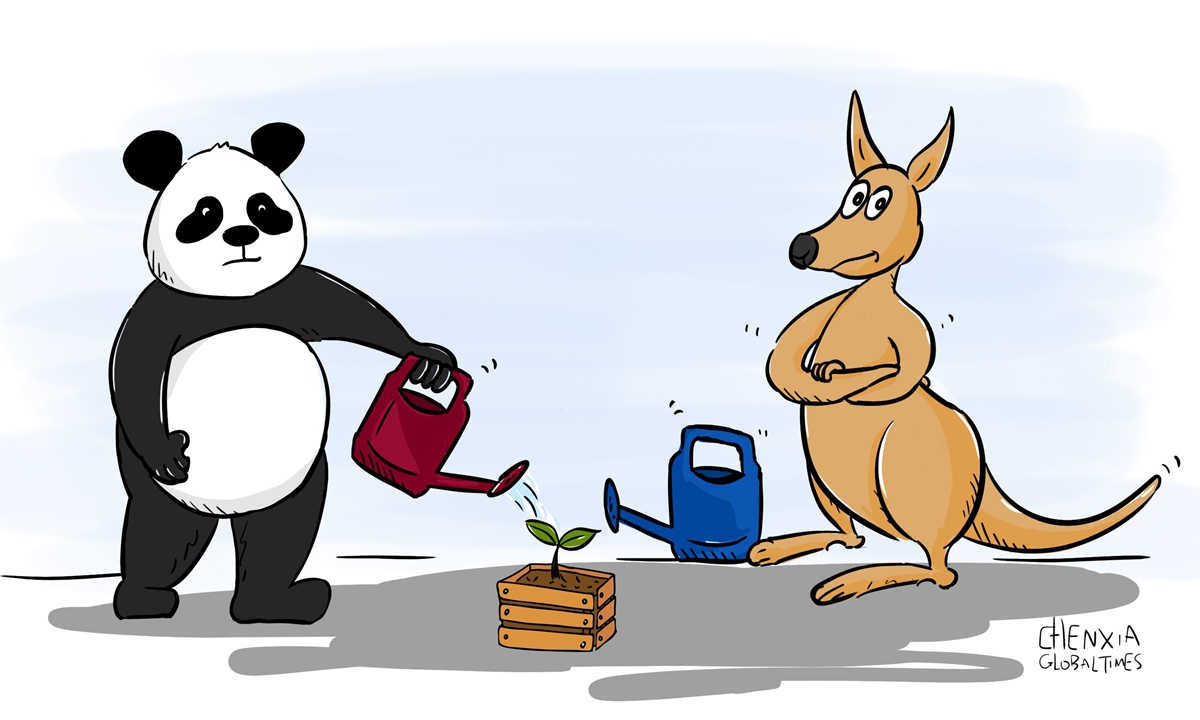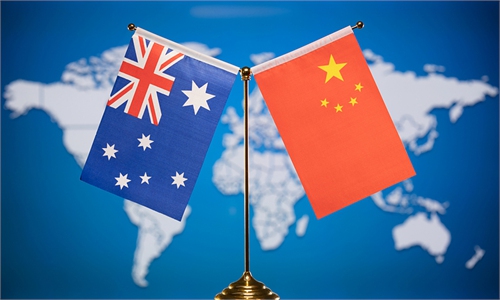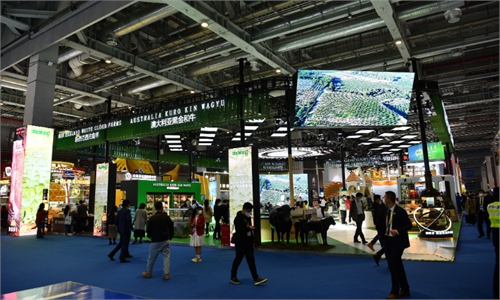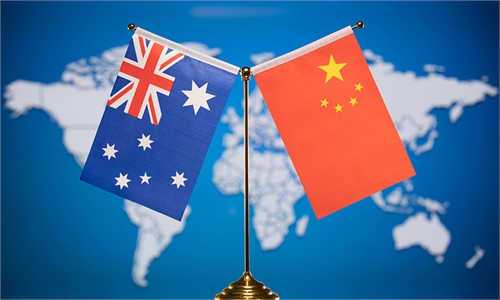Can Australia shake off the influence of 'White Man's Media' to improve China ties?

Illustration: Chen Xia/GT
The meeting between President Xi Jinping and Prime Minister Albanese on November 15 on the sidelines of the G20 summit in Bail could result in an overdue improvement in relations between our two countries.For 45 years after the establishment of diplomatic relations we got on well together. But the mood changed after 2015 when Malcolm Turnbull became Prime Minister. Encouraged by some of his advisers, the Australian government took many actions that upset China - hostile speeches by the Prime Minister and other Ministers, the use of anti-dumping measures against on Chinese aluminium and steel products, rejecting Chinese investment in non-strategic industries like dairy products and leading the campaign against Huawei's 5G system. Homes of Chinese journalists in Australia were raided and to please President Trump, we publicly blamed China for the outbreak of COVID-19.
More recently arrangements between Australia and the US on nuclear submarines and the rotation of US B52 bombers in North Australia have not helped.
The Australian government's hostility towards China was supported and encouraged by our poorly-informed media that is heavily influenced by a Washington-centric view of the world. It is really a White Man's Media.
In response China took countermeasures on a range of Australian products in 2020 - wine, barley, beef, lobsters and some coal. Ministers in former Coalition Governments, and now Prime Minister Albanese, criticized China for $20 billion sanctions on Australian products. I think this $20 billion is bogus. And our media keeps repeating it whilst failing to mention how the dispute first began with Malcolm Turnbull.
Despite the obstructive action taken on both sides, two-way trade has continued to be strong particularly with recent Chinese purchases of iron ore.
Whilst I hold Australia rather than China most responsible for the tensions, the Australian public has clearly sided with the Australian government in the disagreements. Our media has played a big part in promoting the hostility against China.
There are good reasons for both Australia and China to now repair the relationship. China is our biggest trading partner by far and as China further grows and develops, that trade will increase. Australians would suffer heavily if there was a major disruption of Australia-China trade.
Hopefully the meeting between President Xi and Prime Minister Albanese will start to put relations back on track after they have been foolishly and dangerously damaged.
In any relationship there will be problems, but those difficulties can best be solved through diplomatic discussions and compromise.
This meeting between President Xi and Prime Minister Albanese comes 50 years after diplomatic relations were established by the Whitlam Labor government with which I was closely associated. In fact, I accompanied Gough Whitlam on his visit to China in 1973 to celebrate establishing diplomatic relations.
Gough Whitlam died several years ago but I am sure that he would have been disturbed about the unfortunate approach of successive Australian governments to relations with China. In 1972 and in subsequent years Gough Whitlam made it very clear that he would not be a patsy for the US.
Gough Whitlam never tired of proclaiming that "There is only one China. Peking is the capital of one China. Taiwan is a province of one China."
I hope that Prime Minister Albanese also emphasized to President Xi that just as Gough Whitlam supported the policy of "one China" so he also supports that policy without qualification.
Such a clear declaration by Prime Minister Albanese would have been a great help in getting Australia-China relations back on track despite the background noise coming from the Americans.
The author is former Secretary of the Department of Prime Minister and Cabinet under Gough Whitlam and Malcolm Fraser. He is the Founder and Editor in Chief of Pearls and Irritations (https://johnmenadue.com), a public policy journal. opinion@globaltimes.com.cn



